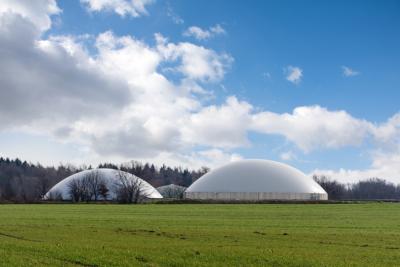Green Gas Support Scheme and Green Gas Levy Launch
- David Fletcher
- Deputy Director (Policy & Engagement)
- Publication type:
- Blog
- Publication date:
The Green Gas Support Scheme (GGSS) and the associated Green Gas Levy (GGL) launched on 30 November 2021 and is open for applications in England, Scotland, and Wales until November 2025. We’re delighted to be administering the schemes on behalf of the Department of Business, Energy, and Industrial Strategy (BEIS).
The aims of the scheme
The scheme has two main objectives. The first is to encourage the use of anaerobic digestion biomethane plants to increase the amount of green gas in the gas grid system, to contribute to carbon savings and ensure value for money for consumers. The second is to effectively contribute to the UK governments response to Climate Change to reach net zero emissions by 2050.
The importance of the scheme
Currently, heating our homes, business and industry is responsible for a third of the UK’s greenhouse gas emissions. As we transition into a low carbon economy, the scheme is crucial as it will help decarbonise our gas supplies by increasing the proportion of green gas in the gas grid, through support of biomethane injection. Biomethane is classed as renewable and can offer significant carbon savings when compared with natural gas.
The injection of biomethane into the gas grid accelerates the decarbonisation of gas supplies in a way that ensures cost effectiveness. This is a necessary step towards meeting our carbon reduction targets, including the UK’s net zero greenhouse gas emissions target.
The Non-Domestic Renewal Heat Incentive has already played a key role in the decarbonisation of heat generation throughout the UK. Following the closure of the scheme in March 2021, the government, as part of the government response to the Future of Low Carbon Heat, has introduced the GGSS, funded by the GGL, to ensure continued dedication to the decarbonisation of gas supply within the UK.
The benefits of the scheme
The GGSS is funded through the GGL, which will place obligations on licensed gas suppliers, including the requirement to make a quarterly levy payment, which will be set annually by BEIS. From this levy, registered participants will receive quarterly payments over a period of 15 years, based on the amount of eligible biomethane the participant injects into the grid.
In driving increasing proportions of green gas into the grid, the reduction in emissions will benefit gas users and society by reducing our dependence on burning natural gas to heat our buildings.
The government has also highlighted that the GGSS is expected to increase the scope of opportunity for employment within rural areas. It is anticipated that approximately 500-900 jobs will be created per annum during the construction phase of plants supported under the scheme and 500-550 direct operational jobs over the lifetime of the plants, as well as supporting further indirect jobs.[1]
Moving Forward
Ofgem has created a bespoke digital service for scheme users which offers applicants and participants a simplified and accessible user experience. The service is currently in private beta, which means we will continue to respond to feedback and iterate improvements.
We have worked closely with the government and BEIS to ensure that the levy design has been implemented robustly to minimise opportunities for non-compliance by building upon our existing audit and compliance programme.
For more information on the GGSS and the GGL, please see our website and keep an eye on our social media channels for updates.
Ofgem continues to protect our consumers by delivering a fairer, greener energy system, whilst supporting decarbonisation.
We look forward to working with participants in the schemes we administer – now and in the future.
[1] Green Gas Support Scheme and Green Gas Levy: final stage Impact Assessment (publishing.service.gov.uk), p.7, 12

